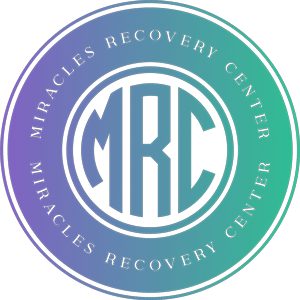Embarking on an outpatient program can be filled with a mix of emotions—from hopeful to anxious. Understanding what lies ahead can help ease your mind and prepare you for the journey. This guide is designed to walk you through the basics of what to expect, explained in a simple, engaging manner.
Overview of Outpatient Programs
An outpatient program involves regular visits to a medical or counseling center without needing an overnight stay. Understanding the structure and purpose of these programs is the first step towards preparation.
Unlike inpatient programs, outpatient care means you can continue your daily life while seeking treatment. This flexibility is beneficial for those who cannot take extended leave from work or family responsibilities.
Typically, these programs are designed to support individuals with mental health, substance use issues, or chronic medical conditions that don’t require round-the-clock supervision. It’s a way to receive comprehensive care while keeping the rhythm of your everyday life intact.
Types of Services Offered
Outpatient programs can vary widely in the services they offer, from therapy and counseling to medical treatments and support groups. Knowing what services are available can help you align them with your personal recovery goals.
Therapy sessions, either individual or group, are core aspects, focusing on mental health, coping mechanisms, and behavioral therapies tailored to specific needs like managing anxiety, depression, or substance dependency.
Some programs also offer holistic services, such as occupational or physical therapy, nutritional counseling, and stress management techniques, to aid in your overall well-being.
What to Expect on Day One
The initial visit is often about assessment and orientation. Be prepared to discuss your medical history, your expectations, and set goals with a healthcare provider.
You’ll likely fill out a fair amount of paperwork and undergo a comprehensive assessment to tailor the program to your needs. Think of it as laying the groundwork for a personalized treatment plan.
The first day is also a great opportunity to ask questions. Whether it’s about the program structure, the qualifications of the staff, or the expected outcomes, getting clarity at the outset can significantly ease your concerns.
The Role of Personal Commitment
Success in an outpatient program heavily relies on your commitment. It requires a balance of attending scheduled sessions and integrating learned practices into your everyday life.
Your engagement is key. Being open and honest with your care providers, actively participating in sessions, and doing any assigned work outside of the program will contribute to your progress.
Navigating Challenges and Setbacks
Encountering challenges is a normal part of the recovery process. Here’s how to maintain focus on your goals and seek support when needed.
It’s not uncommon to experience days when progress seems slow, or you face personal obstacles. During these times, it’s crucial to lean on the support network you’ve built—therapists, family, friends, or fellow participants in the program.
Remember, setbacks are not failures but opportunities to learn and grow. Keeping communication open with your support team can help you overcome these hurdles and stay on track with your recovery goals.
Transitioning Back to Everyday Life
As the outpatient program comes to an end, preparing for the transition back into your regular routine is crucial. Developing a sustainable plan for self-care and support can make a significant difference.
This phase involves reflecting on the coping skills and strategies you’ve learned, and how you’ll apply them in daily life. It’s also a time to evaluate your environment and relationships to ensure they support your continued growth and recovery.
Staying connected with your care providers post-program can also provide an additional layer of support, helping to reinforce the gains you’ve made. They can offer guidance, follow-up sessions, or referrals to community resources as needed.
Embracing Your Journey Beyond the Outpatient Program
As you wrap up your outpatient program journey, remember that the transition back into your regular routine is an important phase of your recovery. The knowledge and tools you’ve acquired during your program are stepping stones to a healthier life. Whether it’s continuing therapy, establishing a support network, or practicing self-care, integrating these components into your daily life is crucial for maintaining your wellbeing.





